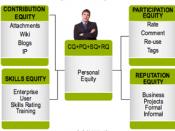Performance-related pay is a financial reward to staff whose work is considered above average. It is usually used for employees whose work achievements cannot assessed simply through numerical measures. Performance-related pay schemes are usually linked to the appraisal process, on which evaluation on staff performance during the year can be made. Performance-related scheme is a highly attractive system to encourage employees towards the organisation's objectives. According to the Wyatt study (1990), which measured effectiveness of performance management in 598 companies, 93% of personnel management regarded pay for performance as major priority. However, according to the same study, only 20% of managers considered their appraisal systems as effective. Some of the major factors to influence effectiveness of performance-related pay schemes were stated in expectancy theory. Although these theories do provide us with simplified models on which requirements for performance-related pay schemes can be based. There is a high level of uncertainty associated with them.
One of the most popular explanations for effectiveness of performance-related pay schemes is Victor Vroom's expectancy theory. According to Robbins (p.171): "Expectancy theory argues that the strength of a tendency to act in a certain way depends on the strength of an expectation that the act will be followed by a given outcome and on the attractiveness of that outcome to the individual." It is basically argues that the motivation to improve performance will depend on three factors: whether employee believes that greater performance will lead to better performance, whether higher performance will lead to reward and whether the reward is valuable to that person. In other words motivation will exist if three conditions called: expectancy, instrumentality and valence are present. For example, employee X works hard to improve his performance, however the objectives set before him by management perceived by worker as unrealistic. No...



Great Essay!!
Very well written!!! Keep up the good work!! Very informative!
3 out of 4 people found this comment useful.